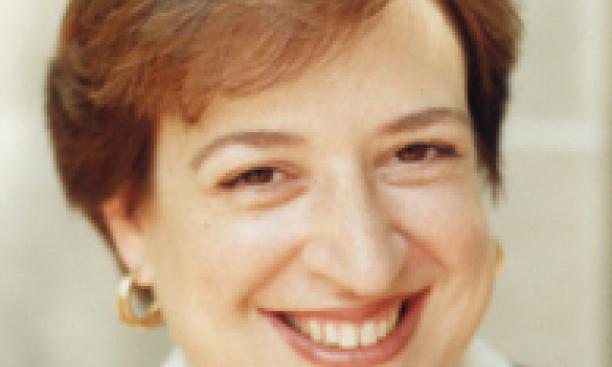

When Kagan joins fellow alumni Samuel Alito â72 and Sonia Sotomayor â76 on the high court, it will be the first time since 1842 that three alumni have served together. Kagan is the 12th Princetonian in a line of justices that stretches back to George Washington's presidency. Below, a look at the University's other 11 justices.
(Photo courtesy Harvard Law School)
WILLIAM PATERSON 1763
Nominated by President Washington
Years on the court: 1793-1806
Best known for helping to shape the legislative branch at the Constitutional Convention, Paterson later made his mark on the judiciary, participating in the landmark Marbury v. Madison case, which established the court's power to declare laws unconstitutional.
OLIVER ELLSWORTH 1766
Nominated by President Washington
Years on the court: 1796-1800
Ellsworth, Princeton's lone chief justice, made few lasting contributions in his four years on the high court, but at least he helped cut down on paperwork. He pioneered the use of consensus opinions, rather than having each justice write his own.
H. BROCKHOLST LIVINGSTON 1774
Nominated by President Jefferson
Years on the court: 1807-1823
Although one biographer wrote that Livingston "never left a mark" on the court, the justice's pre-court career was a remarkable tale of survival. He fought in the Continental Army, survived a stint as a prisoner of war, ducked an assassination attempt in 1785, and killed a rival in a 1798 duel.
SMITH THOMPSON 1788
Nominated by President Monroe
Years on the court: 1823-1843
Preoccupied with political aspirations early in his career, Thompson eventually contributed to several important decisions, but according to biographer Donald M. Roper, he spent his career "in the shadow of legal giants" such as John Marshall.
WILLIAM JOHNSON JR. 1790
Nominated by President Jefferson
Years on the court: 1804-1834
Johnson's independence earned him historical distinction as the "first dissenter," and in many cases on the Marshall court, he was the only one. He wrote 34 minority opinions, far more than his contemporaries on the court.
PETER V. DANIEL 1805
Nominated by President Van Buren
Years on the court: 1842-1860
A gifted student, Daniel entered Princeton with the junior class, but he withdrew after less than a year on campus. At home in Virginia, he prepared for a law career under the tutelage of his father-in-law, Edmund Randolph, the first U.S. attorney general.
JAMES MOORE WAYNE 1808
Nominated by President Jackson
Years on the court: 1835-1867
Wayne, Princeton's longest-serving justice, concurred in the court's infamous Dred Scott decision, supporting slavery. But his devotion to country outweighed loyalty to his native Georgia: When the Southern states seceded, Wayne remained on the court.
MAHLON PITNEY 1879
Nominated by President Taft
Years on the court: 1912-1922
Pitney studied law under his father, a prominent attorney. When the University secretary inquired about his degree in 1906, the then-New Jersey Supreme Court justice replied, "Dear Sir, I attended no law school and have no law degree. Yours very truly, Mahlon Pitney â79."
JOHN MARSHALL HARLAN â20
Nominated by President Eisenhower
Years on the court: 1955-1971
The grandson of a Supreme Court justice of the same name, Harlan was a key conservative voice on the Warren court. In his PAW memorial, classmates recalled their former class president's "forthright character, his innate friendliness, and his superior intellect."
SAMUEL ALITO â72
Nominated by President George W. Bush
Years on the court: 2006-present
Alito's yearbook entry in the Nassau Herald famously declared that he aimed "to warm a seat on the Supreme Court." Thirty-four years after graduation, that goal became reality. Before joining the Supreme Court, Alito worked for three years as the U.S. Attorney for New Jersey, his home state, and spent nearly 16 years on the U.S. Court of Appeals.
SONIA SOTOMAYOR â76
Nominated by President Obama
Years on the court: 2009-present
Sotomayor, the first Hispanic justice on the Supreme Court, also was a trailblazer at Princeton, where she was an activist for Latino causes and a founder of the Latino Student Organization. Like Alito, Sotomayor ascended to the high court after more than a decade of service on the U.S. Court of Appeals.
